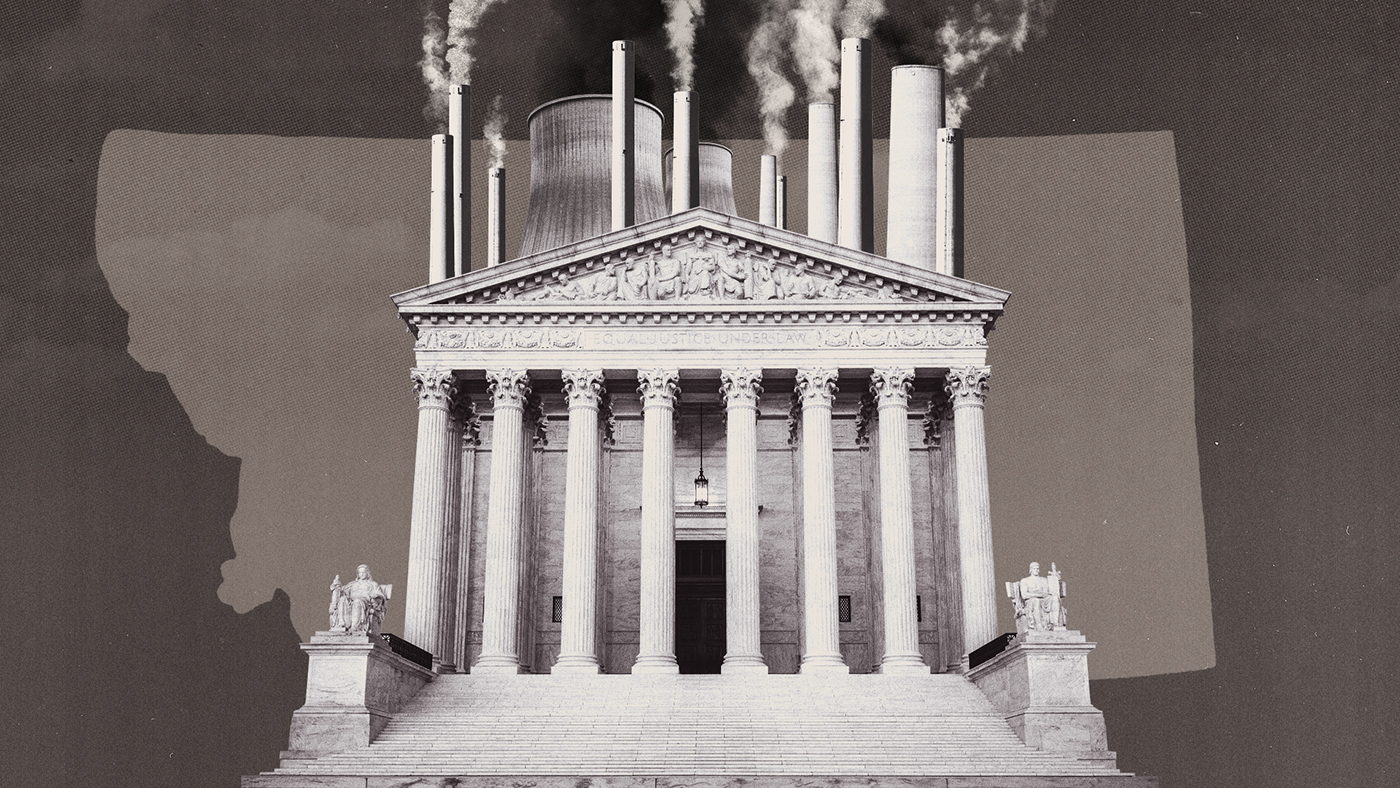Why are young Montanans suing over climate change?
More lawsuits against energy companies are on the way


A free daily email with the biggest news stories of the day – and the best features from TheWeek.com
You are now subscribed
Your newsletter sign-up was successful
Can young people fight climate change with a lawsuit? A group of young Montanans is trying, The Associated Press reported, going to "a first-of-a kind trial of a lawsuit that environmentalists hope will spur changes in the fossil fuel-friendly state." The state constitution contains a clause guaranteeing the right to a "clean and healthful environment," and the plaintiffs — 16 Montanans, aged 5 to 22 — say the state's pro-carbon policies threaten their future.
Climate change is "affecting people in Montana and people working closely with the land, and we rely on environmental systems to make a living," lead plaintiff Rikki Held told the Christian Science Monitor. She said climate change has already created challenges like wildfires and flooding at her family's ranch near Big Sky.
Montana officials are fighting the suit, The New York Times reported, claiming the state's carbon emissions aren't substantially adding to the pace of climate change. "Climate change is a global issue that effectively relegates Montana's role to that of a spectator," Michael Russell, an assistant attorney general, said during opening arguments this week. The trial is attracting worldwide attention. Will courtrooms be where the future of climate change is decided?
The Week
Escape your echo chamber. Get the facts behind the news, plus analysis from multiple perspectives.

Sign up for The Week's Free Newsletters
From our morning news briefing to a weekly Good News Newsletter, get the best of The Week delivered directly to your inbox.
From our morning news briefing to a weekly Good News Newsletter, get the best of The Week delivered directly to your inbox.
What are commentators saying?
"The age of climate trials starts now," Scott W. Stern wrote at The Washington Post. There is a long history of this kind of legal activism, going back to 1966 when a lawyer who wanted to stop Suffolk County N.Y. from spraying DDT pesticide said he was suing "on behalf of all of the people of the United States, not only of this generation, but of those generations yet unborn." It's hard to say who will win the Montana trial, but the legal outcome isn't the only one that matters: "It will put the issue before a judge, as well as before the court of public opinion."
Putting the climate issue before the courts is un-democratic, Nate Hochman wrote at National Review. "In our form of government, important issues are hashed out via democratic deliberation," but climate activists are instead increasingly choosing to try to sue carbon producers into submission." Yes, climate change is a serious issue. But a "lawfare" approach won't work and is wrong besides. Such lawsuits are an attempt to legislate climate policy "from the bench" and serve as "an act of targeted harassment against disfavored institutions."
Legislative leaders in Montana have dedicated themselves to a "decades-long commitment to propping up expensive, polluting fossil fuels" with laws that "undermine climate action," a group of organizations supporting the Montana lawsuit wrote in the Helena Independent Record. That violates young Montanans' rights to a "rights to a clean and healthful environment," which is why they're bringing the lawsuit. "We shouldn't be relying on our young people to fight for their future; we should be working to give them the best future possible."
What's next?
Regardless of how the Montana suit turns out, 2023 will be a "watershed year for climate litigation," The Guardian reported. It may not always work out in the plaintiffs' favor: In April for example, a Canadian judge dismissed another youth-led lawsuit even while criticizing Ontario's provincial government for falling "severely short" of adequate climate planning. Other cases are percolating in Mexico, South Africa and Australia.
A free daily email with the biggest news stories of the day – and the best features from TheWeek.com
Even if the Montana lawsuit succeeds, it isn't clear that it can be replicated in other U.S. states. Montana's constitutional guarantee of a healthy environment is "provided in only two other states: Pennsylvania, and as of 2021, New York," Rolling Stone reported. But climate activists may have a new route through the courts: The U.S. Supreme Court in April allowed cities in Colorado, Maryland, California, Hawaii and Rhode Island to proceed with climate lawsuits against energy companies in state courts. But those trials "could still be years away," Climatewire reported.
The plaintiffs in Montana believe they can help jump-start a dramatic shift in how the law addresses climate change. "You don't hear about all the civil rights cases that failed before Brown vs Education," Lander Busse, one of the plaintiffs, told Rolling Stone. "It's the landmark decision that starts the trickle down."
Joel Mathis is a writer with 30 years of newspaper and online journalism experience. His work also regularly appears in National Geographic and The Kansas City Star. His awards include best online commentary at the Online News Association and (twice) at the City and Regional Magazine Association.
-
 How the FCC’s ‘equal time’ rule works
How the FCC’s ‘equal time’ rule worksIn the Spotlight The law is at the heart of the Colbert-CBS conflict
-
 What is the endgame in the DHS shutdown?
What is the endgame in the DHS shutdown?Today’s Big Question Democrats want to rein in ICE’s immigration crackdown
-
 ‘Poor time management isn’t just an inconvenience’
‘Poor time management isn’t just an inconvenience’Instant Opinion Opinion, comment and editorials of the day
-
 How climate change is affecting Christmas
How climate change is affecting ChristmasThe Explainer There may be a slim chance of future white Christmases
-
 Why scientists are attempting nuclear fusion
Why scientists are attempting nuclear fusionThe Explainer Harnessing the reaction that powers the stars could offer a potentially unlimited source of carbon-free energy, and the race is hotting up
-
 Canyons under the Antarctic have deep impacts
Canyons under the Antarctic have deep impactsUnder the radar Submarine canyons could be affecting the climate more than previously thought
-
 NASA is moving away from tracking climate change
NASA is moving away from tracking climate changeThe Explainer Climate missions could be going dark
-
 What would happen to Earth if humans went extinct?
What would happen to Earth if humans went extinct?The Explainer Human extinction could potentially give rise to new species and climates
-
 Bacteria can turn plastic waste into a painkiller
Bacteria can turn plastic waste into a painkillerUnder the radar The process could be a solution to plastic pollution
-
 Florida has a sinking condo problem
Florida has a sinking condo problemUNDER THE RADAR Scientists are (cautiously) ringing the alarms over dozens of the Sunshine State's high-end high-rises
-
 Diamonds could be a brilliant climate solution
Diamonds could be a brilliant climate solutionUnder the radar A girl and the climate's best friend
